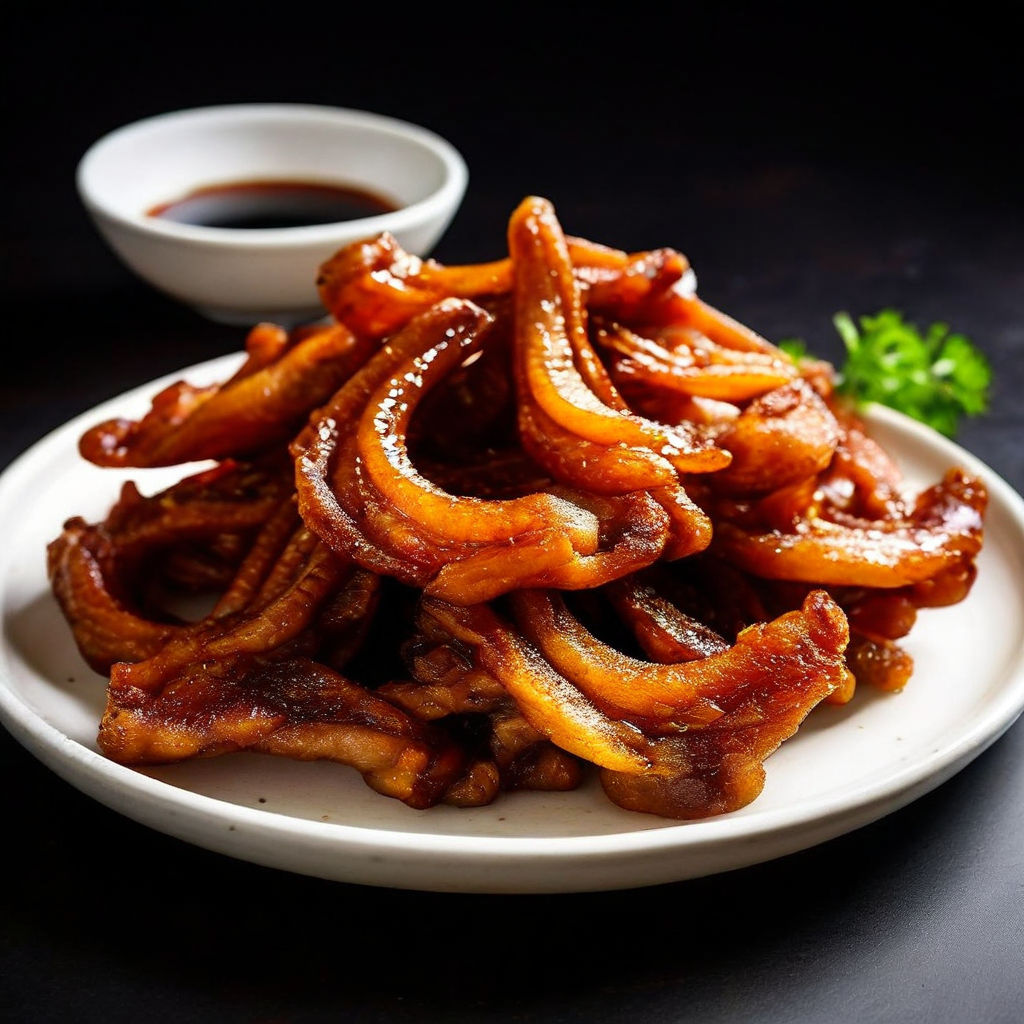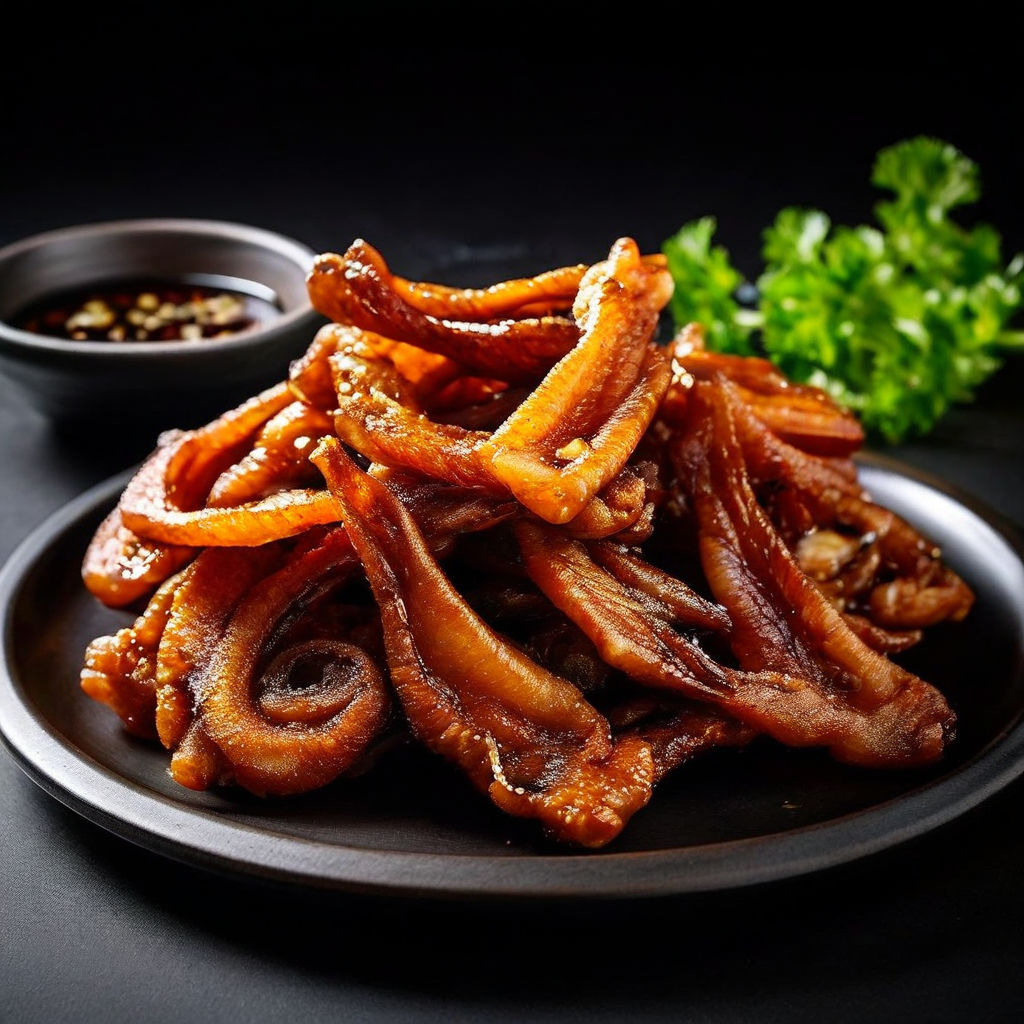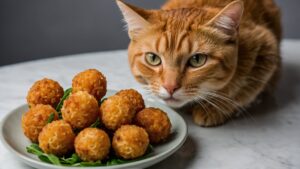Pig ears have become a popular treat and chew toy for dogs. But what about cats – can they also safely snack on these low-cost snacks? This comprehensive guide will explore whether pig ears are safe for feline consumption, the nutritional value of pig ears for cats, potential choking hazards to be aware of, healthier treat alternatives to consider, and signs of illness if your cat accidentally eats pig ears.
Table of Contents
Can Cats Eat Pig Ears?
Pig ears are not recommended by veterinarians as part of a cat’s regular diet or as occasional treats. Here’s why:
- High in Fat and Calories: Pig ears are very high in fat and calories. This can lead to feline obesity and inflammation of the pancreas known as pancreatitis if consumed regularly.
- Risk of Intestinal Blockage: The tough, chewy texture of pig ears requires a lot of chewing. Cats who swallow larger pieces of pig ear have a high risk of experiencing dangerous intestinal obstructions.
- Not Part of Natural Feline Diet: The pig ear snacks marketed for dogs would never be part of a cat’s diet in nature. A cat’s digestive system isn’t designed to safely process them.
For these reasons, most veterinary professionals caution cat owners against intentionally feeding pig ears to cats. The cons simply outweigh the pros when it comes to pig ears for cats.
Nutritional Value of Pig Ears for Cats
Pig ears are promoted as “all natural” dog treats packed with nutrition. But should cat parents consider pig ears as a way to deliver nutrition to cats as well? Let’s analyze the nutritional pros and cons:
Pros
- High in protein – Around 30 grams of protein per pig ear
- Excellent source of calcium and magnesium
- Also contain traces of iron, potassium, phosphorus and zinc
Cons
- Fat content as high as 15 grams per pig ear
- Minimal amounts of essential vitamins like Vitamin A, C, D
- Lack the amino acid taurine which is crucial to a cat’s diet
As evidenced above, while pig ears do technically provide some nutritional value from their protein and mineral content there are also considerable downsides. And they lack many of the essential micronutrients and compounds necessary in a cat’s balanced diet.
Overall, there are far better and more appropriate treat options that can supplement a cat’s diet if needed without the excess fat and calories found in pig ears. More on safe, healthy cat treat alternatives later in this article.
Choking Hazard of Pig Ears for Cats

Another serious risk to consider before allowing your cat to eat pig ears is the direct choking hazards pig ears can pose:
- Small, easily obstructed airways – A cat’s esophagus and windpipes are far narrower than a dog’s airways. This makes cats much more susceptible to blockages when swallowing foreign objects or food.
- Risk of splintering & obstructions – Pig ears are tough and difficult to properly chew even for dogs. Cats attempting to bite off or tear pig ear pieces run a high risk of splintering in their mouths or throats as well as intestinal obstructions.
- Increased risk of choking – According to clinical studies, the risk of choking on pet treats, bones, or food is up to 6 times higher in cats than dogs. Choking accounts for around 16% of cat emergency visits – 4 times more than the rate for dogs.
For these reasons, cat owners would be wise to avoid tempting their cats with pig ears and instead provide safer chew toys designed specifically for a cat’s needs.
Alternatives to Pig Ears for Cats
Rather than pig ears, what treats and toys should cat owners offer instead? Here are some much safer, cat-friendly alternatives:
Healthy Cat Treats
- Freeze-dried chicken or salmon
- Catnip treats
- Yogurt drops
- Low-fat cheese slivers
- Air-popped popcorn crumbs
Safe Chew Toys for Cats
- Rolls of crinkly paper
- Cardboard scratchers
- Cat teasers made of felt or feathers
- Food puzzle toys made of plastic
The key when selecting fun and stimulating toys for cats is to analyze shape, size, and texture to ensure they cannot easily splinter or obstruct cat’s airways if chewed and swallowed.
Always supervise cats when introducing new toys. And take them away once they start shredding into small pieces to prevent choking hazards.
Signs of Illness from Eating Pig Ears
If despite your best efforts your curious cat manages to sneak away with a coveted pig ear treat, watch for these common signs of illness stemming from pig ear consumption:
- Loss of appetite
- Vomiting or diarrhea
- Lethargy and depression
- Abdominal pain like hunching up
- Obstructed bowel movements and constipation
- Pancreatitis symptoms like fever, dehydration, lethargy
If you observe any of these warning signs after your cat ate part of a pig ear, call your veterinarian right away. Gastrointestinal obstruction is a life-threatening emergency requiring quick evaluation and treatment which may involve surgery in severe cases.
By familiarizing yourself with these signs, you can get prompt medical intervention for your cat if needed and help avoid a tragic outcome. Monitoring your cat closely after pig ear exposure is key.
Conclusion: Safer, Healthier Treats for Cats
In closing, letting your cat snack on tasty pig ears intended for canine consumption comes with sizable risks and minimal benefits. From the high fat content to hazards related to chewing and digestion, the consensus is clear that pig ears have no place in a cat’s diet.
Luckily there are many safer, cat-friendly treat alternatives to consider instead to reward and enrich your cat’s life. Items like dried fish, catnip, cheese, and specially designed food puzzle toys will stimulate your cat’s natural instincts to hunt, forage and play without adverse effects on their health. Always supervise treat time and take toys away once they start shredding.
So be sure to steer clear of enticing your feline friend with leftover pig ear stubs. Protect their health and safety by reaching for more appropriate cat treats and chew toys instead!
Frequently Asked Questions About Cats Eating Pig Ears
Can eating pig ears make my cat sick?
Yes, pig ears can definitely make cats sick. Eating pig ears puts cats at risk of pancreatitis, intestinal blockages, vomiting, diarrhea and other illnesses. Their high fat content is hard for cats to digest. And their chewy texture poses choking risks.
Why can’t cats eat pig ears if dogs can?
Dogs and cats have very different nutritional needs and digestive capabilities. Dogs are omnivores built to digest a wider array of foods while cats are strict carnivores. A cat’s gastrointestinal tract is far shorter and more delicate than a typical dog as well. All these points make pig ears inappropriate for cats but more manageable for most dogs.
Are pig ears better for cats than rawhide chews?
No, both pig ears and rawhide pose safety concerns and digestion issues for cats including blockages. Neither should be fed to cats. Owners are best off sticking to treats made specifically for cats like dried fish, catnip and other snacks appropriate for feline anatomical needs.
Can pig ears splinter in a cat’s mouth or throat?
Yes, the tough, dense texture of pig ears means they can definitely splinter and cause oral, throat and intestinal damage to cats who attempt to bite and chew on them. The small size of cats’ throats adds to the hazard as it increases their odds of obstructions.




